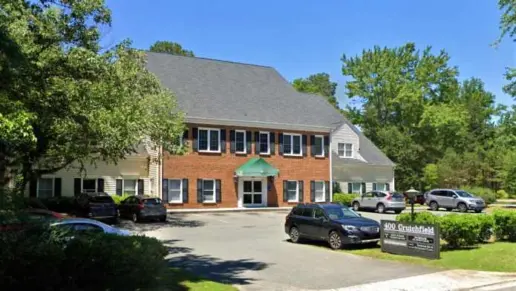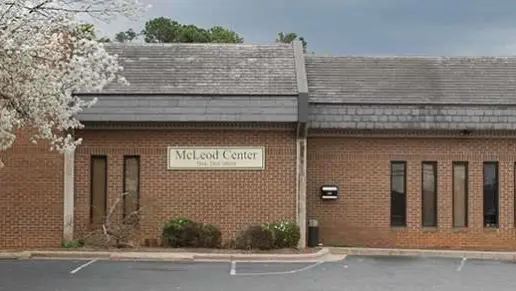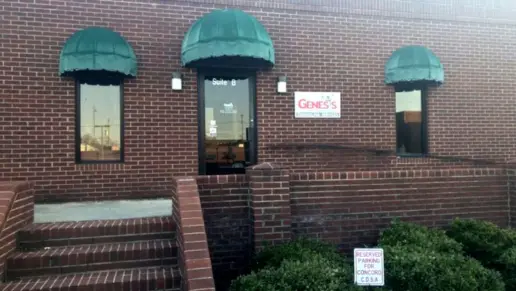About Two Dreams Outer Banks
Two Dreams Outer Banks offers a unique approach to addiction treatment, combining holistic wellness with clinical research to provide adults with the tools to achieve short and long term recovery. It is a luxury residential treatment facility in Corolla, North Carolina. Other available programs here include medication assisted treatment (MAT), in home consultations, and varying levels of outpatient care. They are in network with most private insurance companies and offer treatment awards to offset the cost of service for qualifying clients.
Two Dreams encourages clients to make the deliberate choice to love, work, and play This is a place where your best interests and qualities are not only looked after but are discovered and enhanced. They follow a 3-7-3 model, which takes place over three phases: coming in, looking in, and looking out. In each phase, you’ll focus on their seven dimensions of care, including abstinence, expert guidance, peer based support, nutritional counseling, medication management, physical fitness, and 12 step programming.
Life at the facility is comfortable with lots of modern amenities. The residence includes a full-sized kitchen, living room, game room, media/theater room, weight room, a deck with porch swings, and a swimming pool. Every morning, you’ll take a sunrise walk on the beach. Five days a week, you’ll engage in some sort of physical activity such as yoga, tennis, basketball, and general free time at the gym. Every evening, you’ll participate in a relaxing scheduled activity, which may include trips to community AA/NA meetings, movie nights, game nights, cookouts, and similar programs.
Art therapy is another interesting cornerstone of this program. Two Dreams believes that art can have therapeutic effects on those suffering from substance abuse disorders (SUD). This technique promotes emotional expression and fosters creativity. At the same time, it also helps clients recognize and clarify their feelings and attitudes toward their condition.
As you step down from residential care, you may enter into their intensive outpatient (IOP) or general outpatient (OP) program. This way, you can attend counseling sessions and educational programs at the facility, but return home each night.
In reviews, clients say that they can tell the staff members at this facility truly want to be there and enjoy what they do. This translates into high quality care that promotes long term recovery. While some reviewers note that the billing and insurance process can be a little tricky, most are quick to point out how caring the team was and that their overall experience was a beneficial one.
Gallery
Other Forms of Payment
Private insurance refers to any kind of healthcare coverage that isn't from the state or federal government. This includes individual and family plans offered by an employer or purchased from the Insurance Marketplace. Every plan will have different requirements and out of pocket costs so be sure to get the full details before you start treatment.
Self-pay involves paying for treatment out of your own pocket. You can use savings or credit, get a personal loan, or receive help from family and friends to fund your treatment. If you don't have insurance or your insurance plan doesn't cover a specific program, self-pay can help ensure you still get the care you need.
Financial aid can take many forms. Centers may have grants or scholarships available to clients who meet eligibility requirements. Programs that receive SAMHSA grants may have financial aid available for those who need treatment as well. Grants and scholarships can help you pai for treatment without having to repay.
Addiction Treatments
Levels of Care
Treatments
The goal of treatment for alcoholism is abstinence. Those with poor social support, poor motivation, or psychiatric disorders tend to relapse within a few years of treatment. For these people, success is measured by longer periods of abstinence, reduced use of alcohol, better health, and improved social functioning. Recovery and Maintenance are usually based on 12 step programs and AA meetings.
There are many types of drug rehab in North Carolina. To receive treatment for addiction, you can choose from many inpatient and outpatient programs. Often, participants start with detox and work through a full continuum of care that continues with ongoing support for long-term recovery.
Individuals struggling with both drug addiction and another mental illness are described as having “co-occurring disorders.” This is a relatively common situation that is exceptionally difficult to treat without specialized support. The disorders trigger a self-perpetuating cycle of distress and drug-use that can easily spiral out of control. This disorder causes the individual to become emotional, which prompts drug-use as a form of self-medication.
A combined mental health and substance abuse rehab has the staff and resources available to handle individuals with both mental health and substance abuse issues. It can be challenging to determine where a specific symptom stems from (a mental health issue or an issue related to substance abuse), so mental health and substance abuse professionals are helpful in detangling symptoms and keeping treatment on track.
Opioid rehabs specialize in supporting those recovering from opioid addiction. They treat those suffering from addiction to illegal opioids like heroin, as well as prescription drugs like oxycodone. These centers typically combine both physical as well as mental and emotional support to help stop addiction. Physical support often includes medical detox and subsequent medical support (including medication), and mental support includes in-depth therapy to address the underlying causes of addiction.
Programs


Clinical Services
Eating disorders include anorexia, bulimia, binge eating, and dysfunctional eating patterns. Many psychologists and other mental health professionals consider eating disorders to be food addictions, meaning food is being used in an addictive way (similar to drug or alcohol addiction). Certain substance abuse treatment programs will have treatment for eating disorders as one of the services offered. An eating disorder may also present as a co-occuring disorder or dual diagnosis alongside drug and alcohol addiction.
Clients are permitted to engage in a variety of free-time activities in-between scheduled events. Being located on the shores of the Outer Banks allows us the opportunity to offer beach activities such as surfing, swimming, fishing, and boating/jet-skiing. Clients with special interests such as skateboarding, painting, or cooking are encouraged to continue pursuing their passions during treatment; any desired activity we can accommodate (within reason) is fair game. Other common free time activities include basketball, table tennis, or hot-tub lounging.
Group therapy is any therapeutic work that happens in a group (not one-on-one). There are a number of different group therapy modalities, including support groups, experiential therapy, psycho-education, and more. Group therapy involves treatment as well as processing interaction between group members.
In individual therapy, a patient meets one-on-one with a trained psychologist or counselor. Therapy is a pivotal part of effective substance abuse treatment, as it often covers root causes of addiction, including challenges faced by the patient in their social, family, and work/school life.
Nutrition is part of the holistic approach of the treatment. Two Dreams implements a comprehensive nutrition plan that is designed to provide natural and long-lasting energy and health benefits to the resident. Their clinical staff works with every client to create an individualized meal plan. They utilize science-based menu planning to serve well balanced meals to their clients every day.
Trauma therapy addresses traumatic incidents from a client's past that are likely affecting their present-day experience. Trauma is often one of the primary triggers and potential causes of addiction, and can stem from child sexual abuse, domestic violence, having a parent with a mental illness, losing one or both parents at a young age, teenage or adult sexual assault, or any number of other factors. The purpose of trauma therapy is to allow a patient to process trauma and move through and past it, with the help of trained and compassionate mental health professionals.
Amenities
-
Residential Setting
-
Yoga Studio
-
Private Rooms
-
Hiking
Accreditations

The Commission on Accreditation of Rehabilitation Facilities (CARF) is a non-profit organization that specifically accredits rehab organizations. Founded in 1966, CARF's, mission is to help service providers like rehab facilities maintain high standards of care.
CARF Accreditation: Yes
Accreditation Number: 261045

State Licenses are permits issued by government agencies that allow rehab organizations to conduct business legally within a certain geographical area. Typically, the kind of program a rehab facility offers, along with its physical location, determines which licenses are required to operate legally.
State License: North Carolina
License Number: MHL-027-012
Contact Information
510 East Hunt Club Drive
Suite E
Corolla, NC 27927


